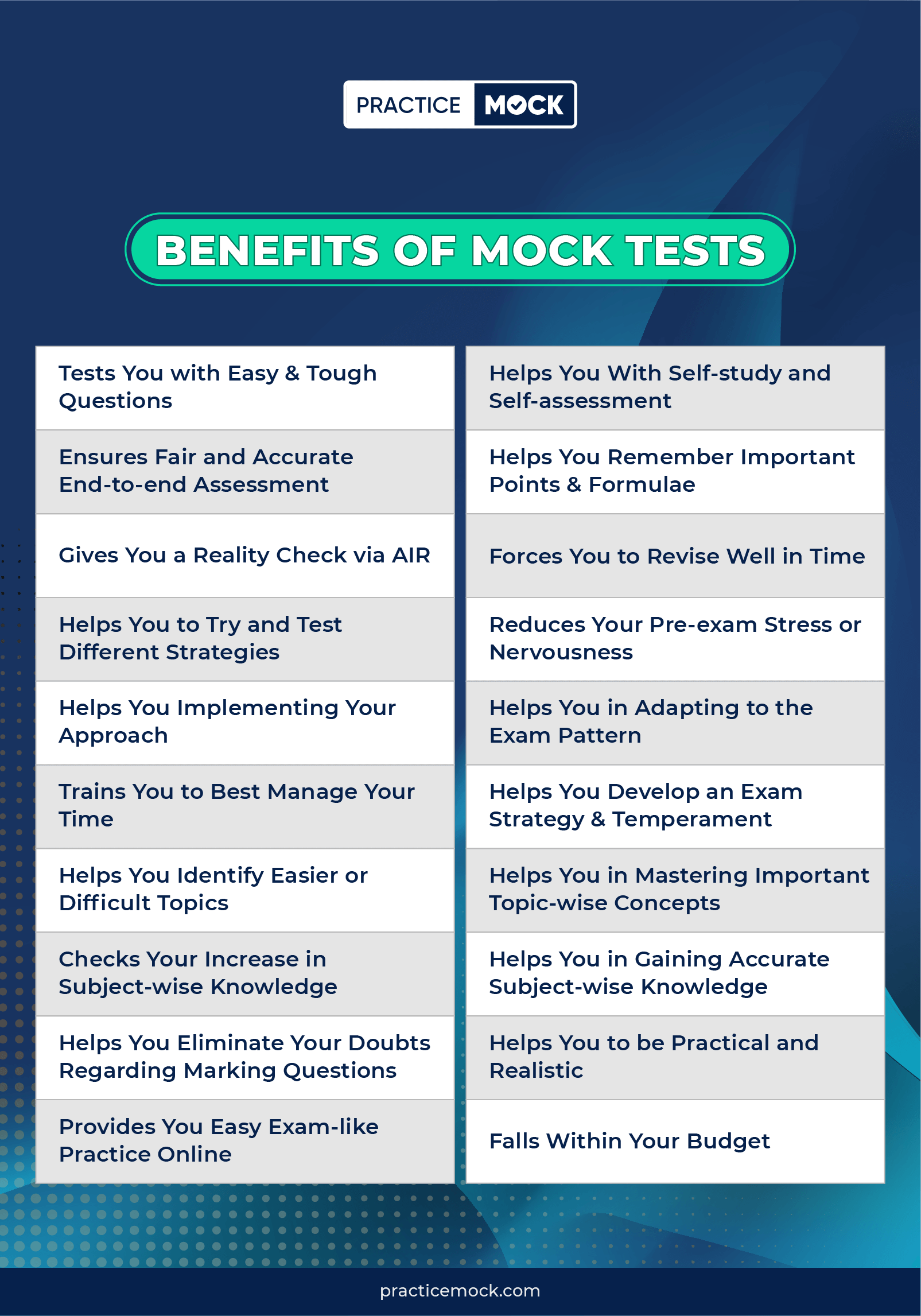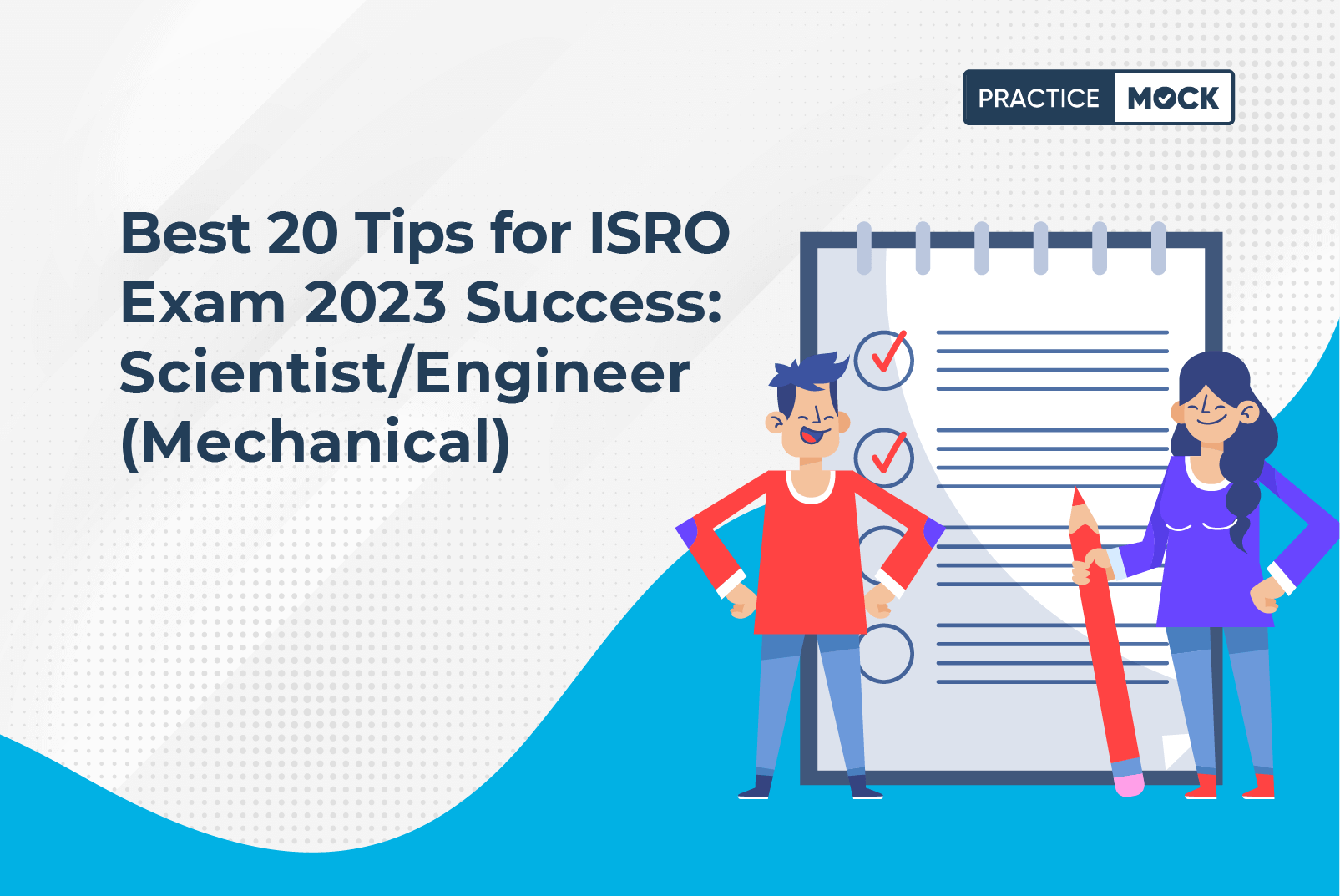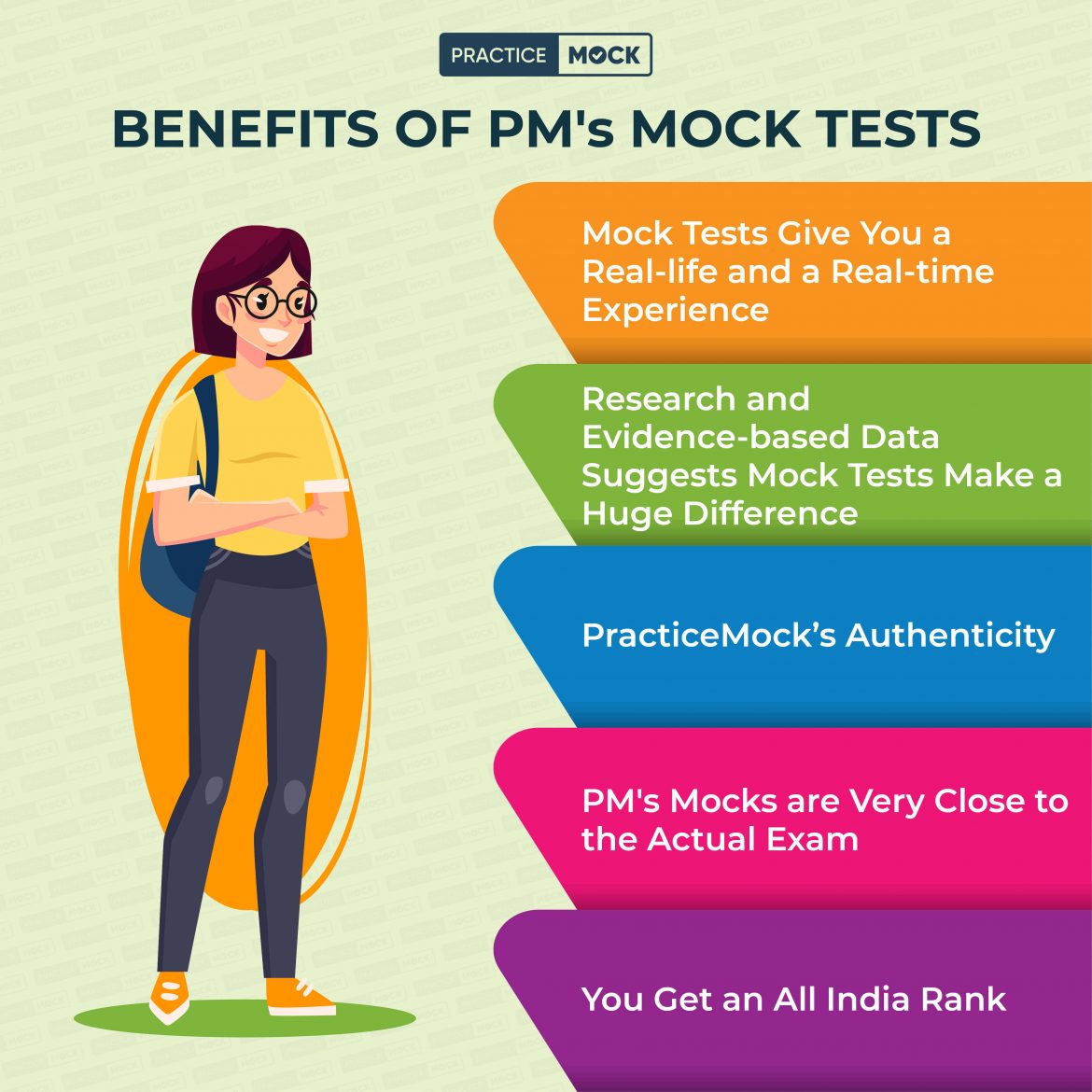ISRO Scientist/Engineer 2023 Exam Tips: The Indian Space Research Organisation (ISRO) has finally released the exam date for the recruitment of Scientist/Engineer ‘SC’ for the year 2023. The written test, which was earlier postponed due to unforeseen circumstances, will now be conducted on Sunday, January 7, 2024. Therefore, If you are serious about joining ISRO as a Scientist/Engineer, you need to prepare, revise, and practice well to crack the ISRO Exam 2023, which is a two-stage process: a written test and an interview.
The written test is a 120-minute race against time, where you have to solve 95 questions. The interview will test your personality, communication skills, technical knowledge, and passion for ISRO. To clear both these hurdles and secure your seat in ISRO, you need to follow the best 20 tips for ISRO 2023 Success along with a FREE Mock Test.
ISRO Scientist/Engineer Selection Process
- ISRO Scientist/Engineer selection process: Written Test & Interview.
- The written test duration is 2 hours. Candidates have to attempt 95 questions.
- Be careful and avoid any guesswork to lose your marks in negative marking (⅓ mark).
- Written Test: Part A (Specific Discipline) & Written Test B: General Aptitude.
- Part A and B written tests are conducted in two Phases I and II.
| Phases | Papers | Ques | Time Duration |
| I | Written Test Part A: Specific Discipline | 80 | Time Duration: 120 minutes (2 Hours) |
| II | Written Test Part B: General Aptitude | 15 |
Best 20 Tips for ISRO 2023 Success
Here are the best tips needed to ace your ISRO 2023 exam and clear the exam with flying colours:
1. Get familiar with the exam pattern and syllabus
The first step to preparing for any exam is to know what to expect from it. The syllabus for the written test is based on the BE/B.Tech curriculum of your engineering branch. You can find the detailed syllabus on the official website of ISRO or in the notification. The exam pattern tells you how many questions, marks, options, duration and negative marking are there in the exam. You can also check the previous year papers to get an idea of the exam pattern. Prepare to face the ultimate challenge of 95 questions that will measure your mastery in two thrilling parts. In Part I, you will have to answer 80 questions, each worth one point, but be careful: every mistake will cost you a third of a mark (1/3rd)! In Part II, you will face 15 more questions that add up to 20 marks, but this time there is no penalty for wrong answers.
2. Make a realistic and achievable study plan
The next step is to make a study plan that covers all the topics in the syllabus and gives you enough time for revision and practice. Your study plan should be realistic and achievable, based on your current level of preparation, availability of time and resources, and personal preferences. You should follow your study plan diligently and track your progress regularly.
3. Clear your concepts and understand the basics
The written test is not a test of your memory, but of your understanding and application of your engineering concepts. You should focus on clearing your concepts and understanding the basics of your engineering branch. You should refer to standard textbooks and notes from your college or coaching classes. You should avoid cramming formulas or facts without knowing their derivation or application.
4. Take mock test
Another effective way to prepare for any exam is to attempt mock tests. Mock tests are online or offline tests that simulate the actual exam environment and test your preparation level. Mock tests help you to improve your time management, problem-solving skills, confidence, and endurance. You should attempt mock tests regularly and review them thoroughly.
ISRO Scientist/Engineer 2023 Mock Tests & PYP for Practice
Take 1 FREE ISRO Mock Test & Improve You Speed & Accuracy 10X!
5. Solve previous years’ paper
One of the best ways to prepare for any exam is to solve previous years’ papers. This will help you to get familiar with the exam pattern, difficulty level, question types, and important topics. You will also get to know your strengths and weaknesses and learn from your mistakes. You should solve as many previous year papers as possible and analyze your performance.
6. Revise is a must
Revision is the key to retaining what you have learned and recalling it during the exam. You should revise the important topics, formulas, concepts, shortcuts, and tricks at regular intervals. You should make short notes or flashcards for quick revision.
7. Stay updated with current affairs
As an aspirant for ISRO, you should keep yourself updated with the latest developments in space science and technology, especially related to ISRO and its missions. You should read newspapers, magazines, websites or blogs that cover these topics. You can also watch videos or podcasts that interestingly explain them.
8. Brush up your basic
Before appearing for the interview, you should brush up on the basics of your engineering branch and revise the important topics that you have studied for the written test. You may be asked to explain or demonstrate some concepts or problems during the interview.
9. Prepare for the interview
The interview is a crucial stage of the selection process that tests your personality, communication skills, technical knowledge, and interest in working for ISRO. You should prepare well for the common questions asked in the interview, such as your introduction, academic background, achievements, hobbies, strengths, weaknesses, goals, etc. You should also be ready to answer questions about your engineering branch, projects, internships, research papers, etc.
11. Be confident and honest
During the interview, you should be confident and positive in your body language, voice tone, and gestures. You should maintain eye contact with the interviewer(s) and smile occasionally. You should be honest and humble in your answers and do not try to bluff or exaggerate anything. If you do not know the answer to a question, admit it politely and request for a hint or a different question.
12. Show interest and enthusiasm
Show interest and enthusiasm in working for ISRO and its missions by expressing your passion for space science and technology. Demonstrate your awareness of ISRO’s achievements, challenges, goals, and vision by asking relevant questions or sharing your opinions or suggestions.
13. Be respectful and courteous
Be respectful and courteous towards the interviewer(s) and other candidates during the interview process. Greet them properly, thank them for their time and attention, and wish them well.
14. Manage your time effectively
Time management is a vital skill for cracking any competitive exam, especially ISRO Exam 2023 which has a tight time limit of 90 minutes for 80 questions. You should manage your time effectively by dividing it into three phases: scanning, solving, and reviewing. Scan the question paper and mark the easy, moderate, and difficult questions. Solve the easy questions first, followed by the moderate ones, leaving the difficult ones for later. Review your answers carefully and check for any errors or omissions.
15. Use the elimination technique
Use the elimination technique to eliminate the wrong or irrelevant options from the given choices in objective-type questions. This will help you to narrow down your options and increase your chances of choosing the correct one.
16. Avoid guesswork
Avoid guesswork or blind guessing in objective-type questions as there is a negative marking of one-third marks for each wrong answer in ISRO Exam 2023. Only attempt those questions that you are sure of or have some idea about.
17. Read the questions carefully
Read the questions carefully and understand what is being asked before attempting them. Do not miss out on any important information or instructions given in the question. Pay attention to the keywords, units, figures, diagrams, etc. that may help you to solve the question.
18. Use shortcuts and trick
Use shortcuts and tricks to solve the questions faster and easier. For example, use approximation, estimation, substitution, elimination, etc. to simplify the calculations or equations. However, do not rely too much on these methods and verify your answers with the conventional methods if possible.
19. Check your calculations
Check your calculations and answers for any errors or mistakes before marking them on the answer sheet. Use a calculator or a rough sheet if allowed to do so. Do not make any careless or silly errors that may cost you marks.
20. Attempt all questions
Attempt all the questions in the question paper as there is no sectional cut-off or minimum qualifying marks in ISRO Exam 2023. However, do not compromise on accuracy and quality while attempting all the questions. Try to score as high as possible in both the written test and the interview to secure your selection.
21. Stay calm and focused
Stay calm and focused during the exam and do not panic or lose your confidence. Do not get distracted by any external or internal factors that may affect your performance. Do not get stuck on any difficult or tricky question and move on to the next one. Do your best and trust your preparation.
Takeaway
Working for ISRO is a dream come true for many engineering graduates who want to contribute to India’s space program and explore the mysteries of the universe. To achieve this dream, you need to clear the ISRO Exam 2023, which is a tough but rewarding challenge. By following these 20 tips, you can prepare well for the exam and ace it with flying colors. Remember, nothing is impossible if you have a clear goal, a strong determination, and a smart strategy. So, go ahead and chase your dream with full confidence and enthusiasm!

- Sign Up on Practicemock for Updated Current Affairs, Free Topic Tests and Free Mini Mocks
- Sign Up Here to Download Free Study Material
Free Mock Tests for the Upcoming Exams
- IBPS PO Free Mock Test
- RBI Grade B Free Mock Test
- IBPS SO Free Mock Test
- NABARD Grade A Free Mock Test
- SSC CGL Free Mock Test
- IBPS Clerk Free Mock Test
- IBPS RRB PO Free Mock Test
- IBPS RRB Clerk Free Mock Test
- RRB NTPC Free Mock Test
- SSC MTS Free Mock Test
- SSC Strenographer Free Mock Test
- GATE Mechanical Free Mock Test
- GATE Civil Free Mock Test
- RRB ALP Free Mock Test
- SSC CPO Free Mock Test
- AFCAT Free Mock Test
- SEBI Grade A Free Mock Test
- IFSCA Grade A Free Mock Test
- RRB JE Free Mock Test
- Free Banking Live Test
- Free SSC Live Test








